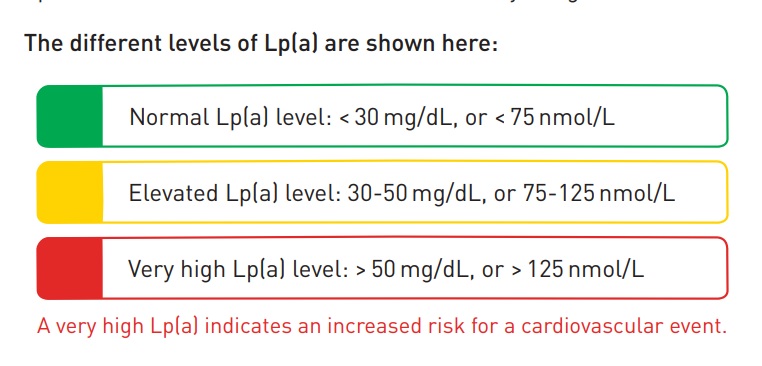What is Lipoprotein (a)?
Lipoprotein(a) is also known as Lp(a). It’s a protein that carries cholesterol (a type of fat) and proteins in your blood. People with high Lp(a) have a higher risk for heart disease.
The level of Lp(a) in your blood is decided by your genes. Genes are passed on to you from your parents. They carry the information that decides how you look and how your body works.
How do we test for Lp(a)?
A simple blood test can measure your Lp(a) level. However, Lp(a) is not usually tested during routine blood tests.
What do the levels of Lp(a) mean?
It’s normal to have some Lp(a) in your blood. High levels of Lp(a) may mean you have an increased risk for heart disease. Lp(a) levels can be measured in 2 different ways: mg/dL or nmol/L.

Who can have high levels of Lp(a) in their blood?
Around 1 in 5 people have high levels of Lp(a). This may be different depending on your race and ethnicity.
You may have a high level of Lp(a) even if you have a healthy lifestyle or are taking other medicine for your cholesterol.
Who should get screened for Lp(a)?
You should get screened for Lp(a) if you or someone in your family:
- has been diagnosed with high Lp(a), or
- had a heart attack or stroke at a young age.





